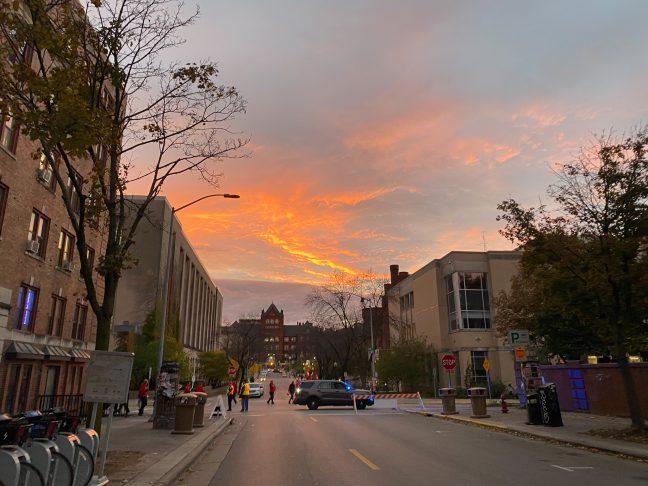The Center for Black Excellence and Culture, which is only $13 million away from its $36 million funding goal, will reduce health disparities in Madison’s Black community by creating opportunities for the Black community to gather, learn from one another and take refuge in their culture, according to founder Rev. Alex Gee.
“This will become a national model of how Black-lead solutions benefit the entire community,” Gee said.
The 65,000 square foot building will include space for networking, Black history education, art, performances, field trips, research and more, Gee said.
The Center will have short- and long-term effects on Madison’s Black community, UW Center for Healthy Minds Director of Diversity, Equity and Inclusion and Center advisory council member Tony Chambers said.
“I think Dr. Gee has put his finger on something that’s going to make an impact just by virtue of its presence,” Chambers said. “When Black people come to the university … and they choose to stay [in Madison] and they believe that this is a place where they belong and are welcome because of who they are, we’ll know that the Center for Black Excellence and Culture had … some impact on that trend and in that transformation.”
The Center will work to create a sense of community and belonging for Black people in Madison, combating this disparity, Gee said. In doing so, the Center will also make UW a more attractive school for prospective Black students.
“Having cultural space, innovation space and networking space in the community helps to make [UW] Madison more attractive to … Black college students and their families,” Gee said.
UW Chief Diversity Officer LaVar Charleston said in an email statement to The Badger Herald that when recruiting diverse students to UW, they also invite them into the city of Madison.
Charleston said though numerous local, campus connection initiatives, including the UW Odyssey Project — a literature course for adult students facing various barriers to education — and others, work to bridge the gap between UW and the community, Gee’s Center will impact the lived experiences of Black community members and UW faculty, staff and students in a meaningful way.
“Typically, when you find Black families who have come to Madison and stayed, it is because we have either found community or created our own,” Charleston said. “The Center, I believe, will add significant value to the Wisconsin Idea which is one of the longest and deepest traditions surrounding the UW, which is simply that education should influence people’s lives beyond the boundaries of the classroom.”
Chambers said a sense of community exists already for white Madison residents but needs to be created for Black people through avenues like the Center.
In fact, due to feelings of isolation and microaggressions in white spaces, Black people are experiencing shortened life expectancies and other health concerns, Gee said. According to Wisconsin Department of Health Services life expectancy data from 2017, white Wisconsinites lived an average of six years longer than their Black counterparts.
The Center for Healthy Mind’s research shows having a sense of belonging positively impacts psychological, physical and emotional well-being, which contributes to life expectancy, Chambers said. Though the Center for Healthy Minds hasn’t studied the well-being of the Black community specifically, Gee’s Center will modify existing data and aid in gathering new data to address these issues, Chambers said.
“There’ll be spaces for Black researchers to come and engage with the Black community, to ask the Black community what it wants to study, what it wants to learn, what it wants the world to know about us and how we [can] create solutions together,” Gee said. “That [will] help us to be healthier mentally, emotionally, physically, physiologically.”
According to an email statement from Madison Mayor Satya Rhodes-Conway’s Chief of Staff Mary Bottari, the city of Madison is fully committed to revitalizing Madison’s south side through supporting several initiatives, including Gee’s Center, the Urban League of Greater Madison’s Black Business Hub and Centro Hispano.
The Center will be located on the 800 block of West Badger Road, in the heart of the historically Black community of South Park Street and is set to begin construction in 2023 and open its doors to the public at the beginning of 2024, according to the Center’s website.
“[The Center] is focused on gathering the Black community, [and being] a place and network that Black students can plug into,” Gee said. “We’re not trying to duplicate programs that they have on campus. We are trying to mimic a sense of community and support that they had at home before coming here to college.”



